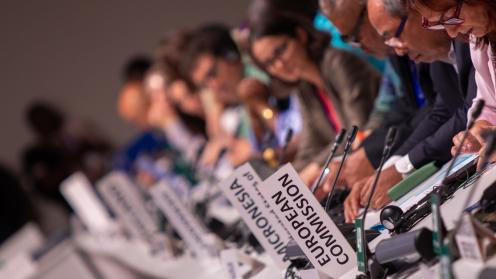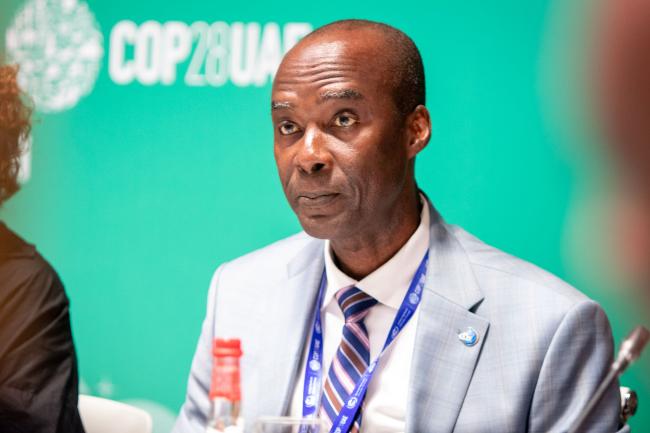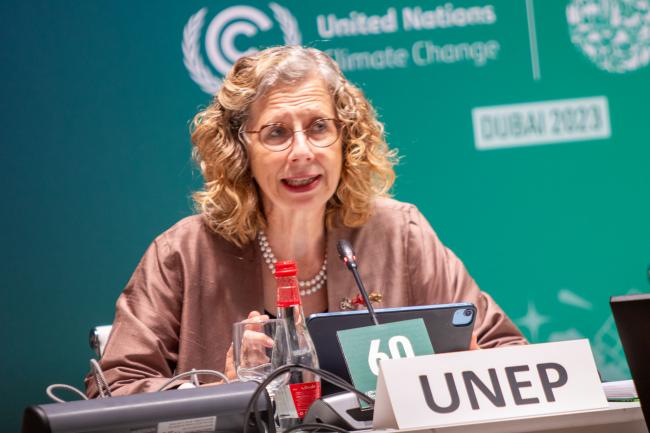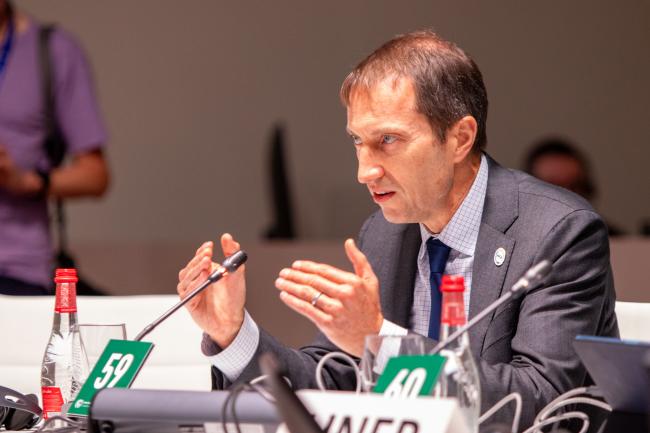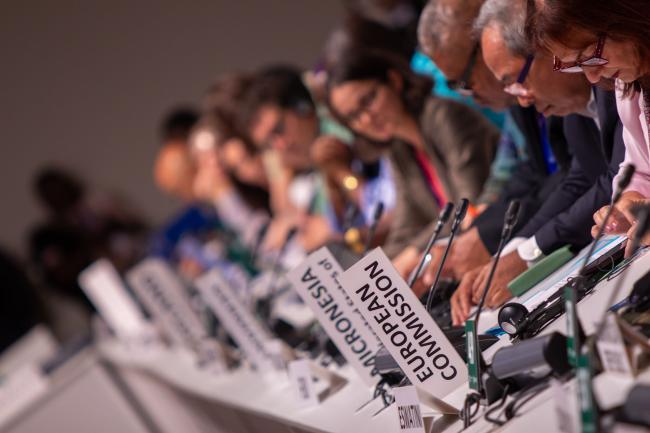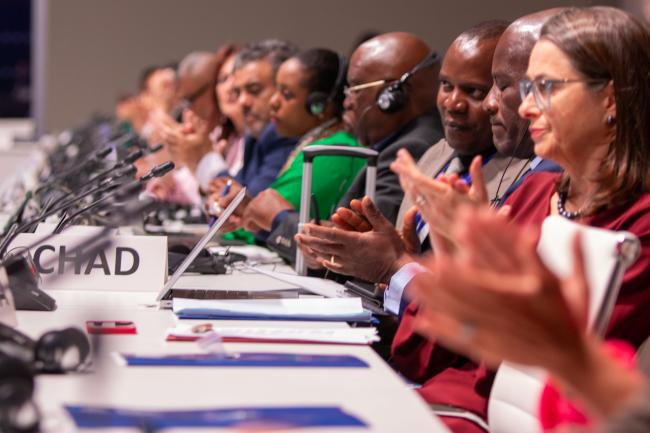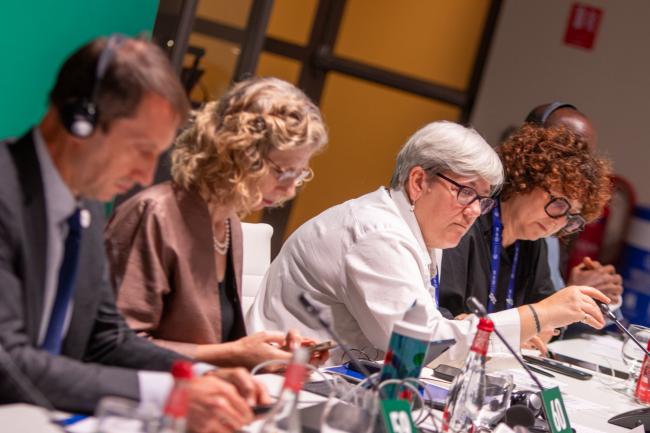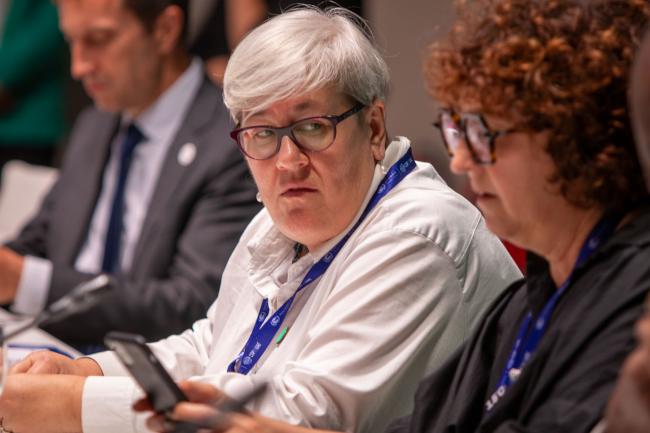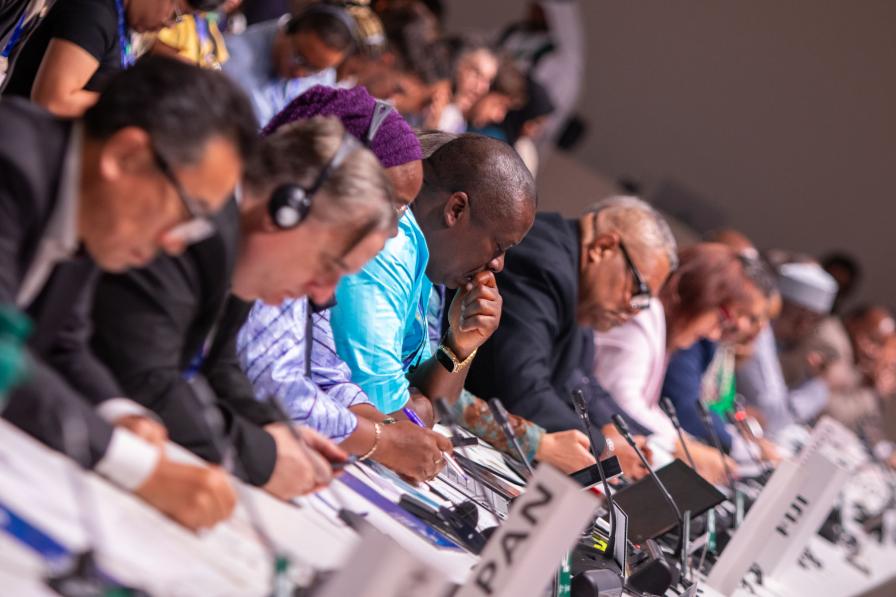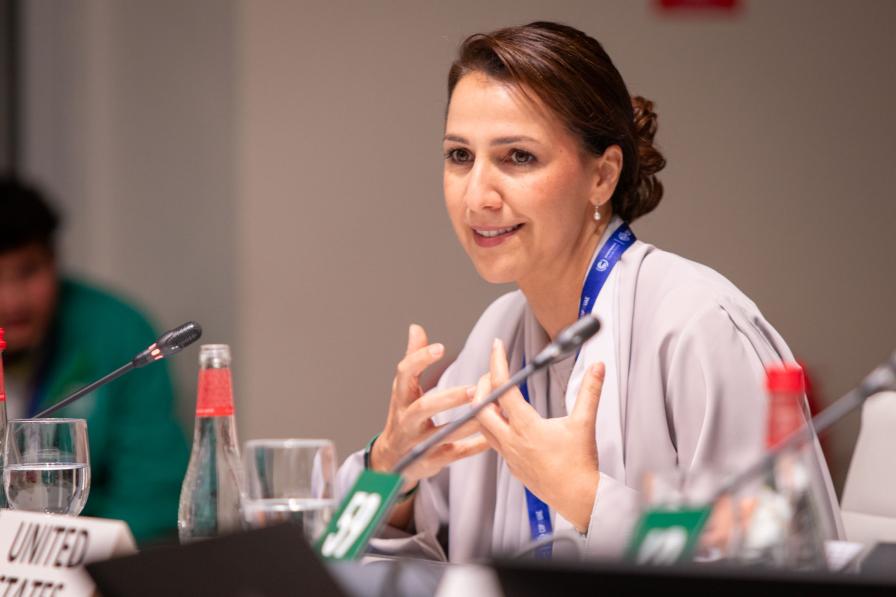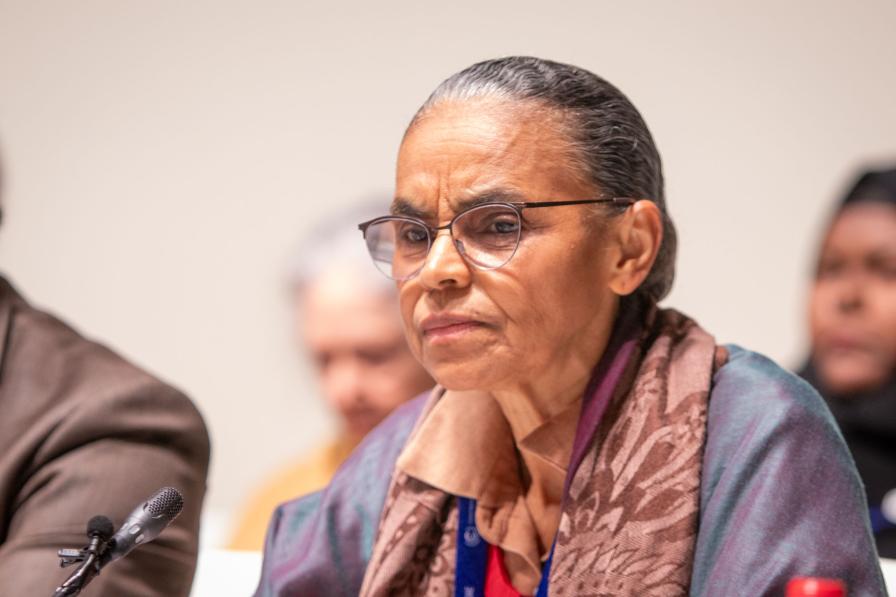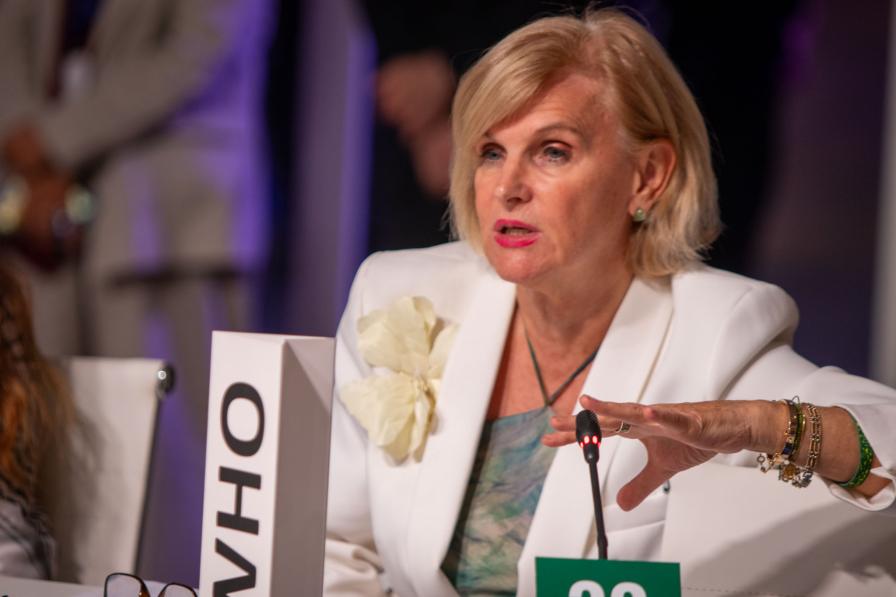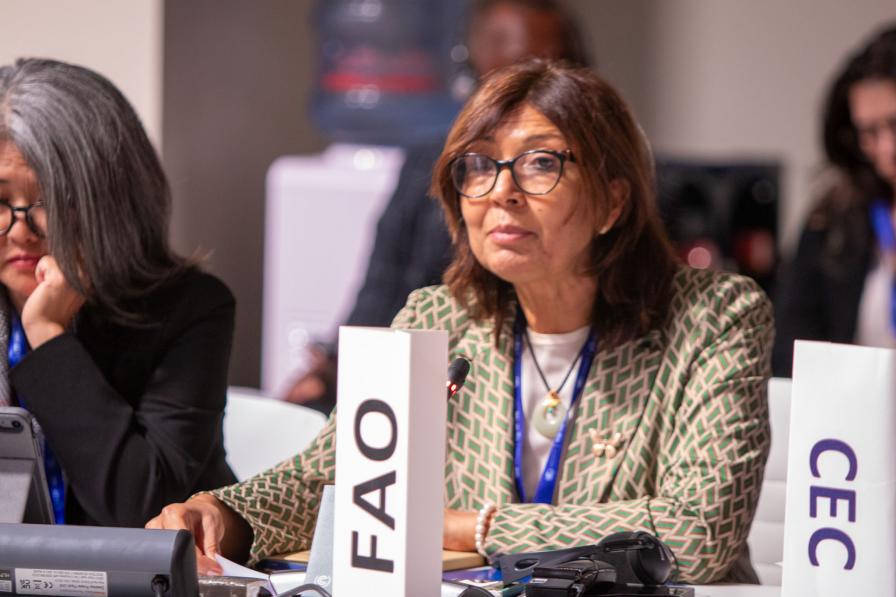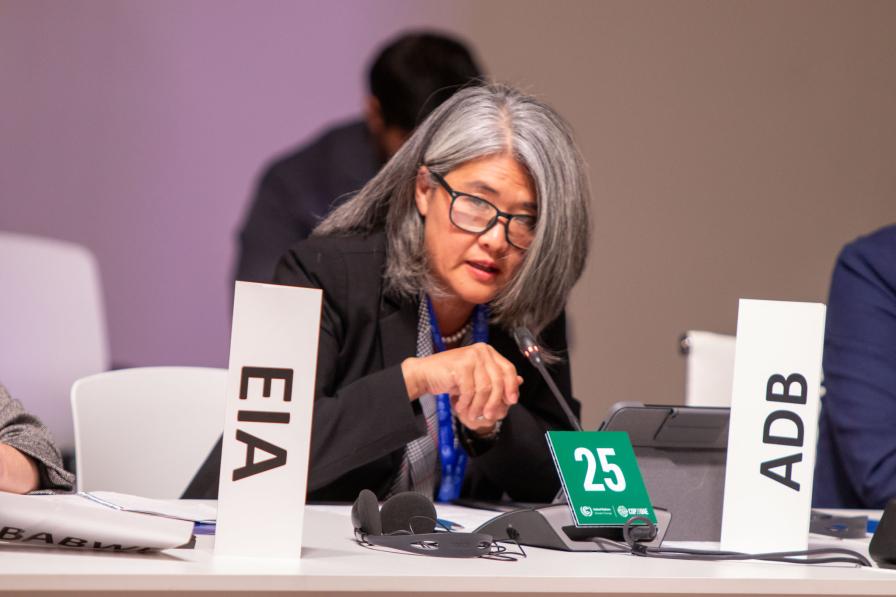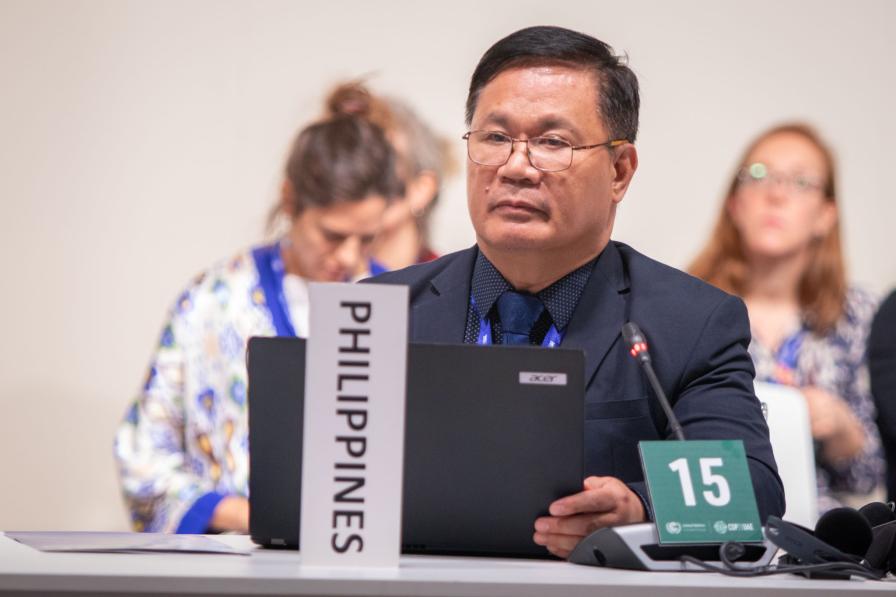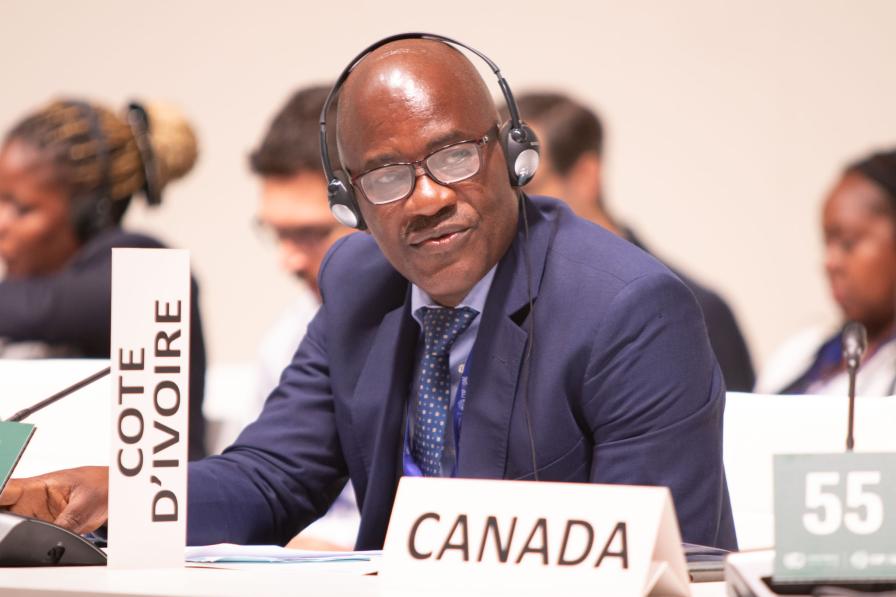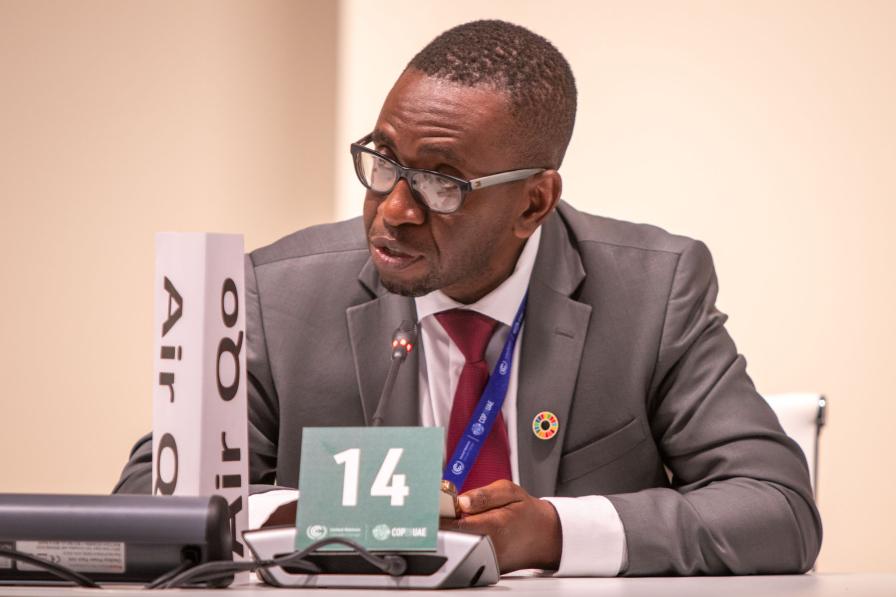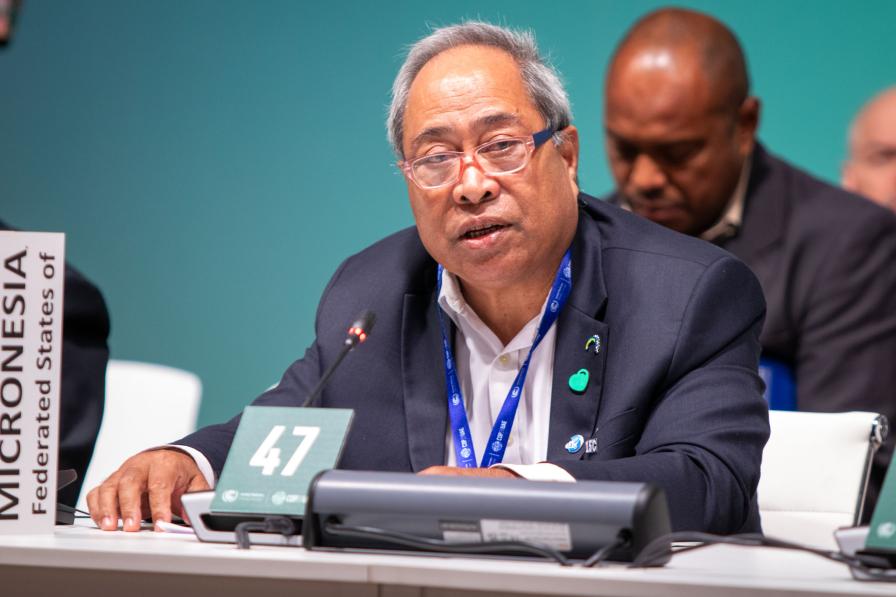About
Amidst a spotlight on non-CO2 pollutants at this COP, the Climate and Clean Air Coalition to Reduce Short-lived Climate Pollutants (CCAC), found renewed pledges of financial support and calls for fast action from its membership at its annual high-level ministerial.
Non-Carbon dioxide (non-CO2) emissions, such as methane, black carbon, nitrous oxide (N2O), and ozone-depleting substances (ODS), such as hydrofluorocarbons, are now playing a central role in the climate negotiations. Amidst a spotlight on non-CO2 pollutants at this COP, the Climate and Clean Air Coalition to Reduce Short-lived Climate Pollutants (CCAC), a central actor in putting these pollutants on the map that provides a platform for joint leadership and action and a support system for countries, found renewed pledges of financial support and calls for fast action from its membership at its annual high-level ministerial.
The COP 28 CCAC High-level Ministerial was attended by heads of several UN agencies, and ministers and other representatives of governments, and representatives of civil society organizations and youth. Delegates discussed their efforts to address short-lived climate pollutants (SLCPs), which are both a source of global warming and air pollution, and presented calls to action to guide future CCAC work. The Clean Air Flagship 2024 – 2026, requested by CCAC partners at COP 27, was launched at COP 28 to mobilize partnerships and achieve clean air across the world.
Opening Comments
Rachel Kyte, CCAC High-Level Advocate for Finance, moderated the event, noting that the CCAC has made “tremendous progress” since its launch at COP 18. The current session, she noted, will focus on finance, which is a missing link for progress.
Patrick Nomo, Chief Director, Ministry of Environment, Science, Technology and Innovation, Ghana, drew attention to the decision of the 35th Meeting of the Parties to the Montreal Protocol on Substances that Deplete the Ozone Layer regarding the dumping of obsolete cooling appliances containing ozone-depleting substances in developing countries. He called on members of the CCAC to curb the export of cooling appliances that do not meet their own national standards to these countries.
Inger Andersen, Executive Director, UN Environment Programme (UNEP), said SLCPs are a lifeboat to grab onto while we decarbonize our economies. She mentioned findings from the Global Methane Assessment, which identified both the multiple benefits from methane action as well as the proven technologies at hand to reduce methane from the atmosphere by 45% by 2030. She mentioned the Global Methane Pledge (GMP), with 155 countries signed up, and recalled that finance is an implementation gap, as to date less than 2% of climate finance is going to methane action. She lauded the over USD 1 billion in catalytic funding and highlighted the important role of the CCAC, with its support system for countries, and now entrusted with secretariat functions for the GMP. Andersen also lauded the CCAC for the launch of the Technology and Economic Assessment Panel (CCAC-TEAP) to develop and share knowledge with countries about SLCP mitigation measures that can improve climate and air quality outcomes. She noted that the CCAC has “proven its ability to turn ambition into action,” with its biggest budget to date supporting 53 countries across key sectors.
Rick Duke, US Deputy Special Envoy for Climate, mentioned the US commitment for a non-CO2 comprehensive economic-wide Nationally Determined Contribution (NDC) in its 2035 NDC submission. The CCAC, he said, is a key part of the Kigali Amendment for implementation of the Montreal Protocol. He praised the CCAC’s plans to develop an N2O assessment. Duke called on stakeholders to maintain active participation in the coalition to ensure ongoing benefits. He also commended the CCAC Secretariat’s work and urged them to be more ambitious and bolder in their collaborative efforts. Lastly, he called “on those who are in a position to do so, to dig deeper into their budgets” and find a way to increase your financial support to the CCAC. We need to raise USD 100 million for the CCAC Trust Fund to achieve full implementation of the CCAC 2030 Strategy.”
Strategic Discussion
During this session, participants discussed their ongoing efforts to: accelerate fast climate action by targeting SLCPs; capitalize on actions that work for climate and clean air; and mobilize more finance for SLCPs. Several also expressed commitments to the GMP.
Germany pledged EUR 20 million for the GMP, EUR 8 million of which will go to the CCAC’s budget. They reported on the European Union’s Methane Strategy to support GMP implementation and reduce global emissions by 30% by 2030. They noted her country’s success in tackling methane emissions by banning open landfills and a mandatory requirement for capturing biogas from wastes.
Ireland announced EUR 2 million in support of the CCAC and urged precise and focused financial support for projects that put ambitions to reduce emissions into action, stressing consideration of making polluters pay and improving the monitoring, measuring, and reduction of methane emissions.
The European Commission said tackling methane emissions is a low-hanging fruit and drew attention to its pledge of EUR 175 million in support of the Methane Finance Sprint, a funding campaign paired with philanthropic commitments to cut methane emissions in line with the GMP. Sweden announced a pledge of USD 180,000 to support the CCAC and welcomed the increasing focus on methane, noting that the Global Stocktake (GST) outcome must cover SLCPs.
The World Bank said it has set aside USD 150 million to support countries to scale up their methane reductions projects to larger programmes, and long-term SLCPs reductions policies. Monaco reported a contribution of EUR 500,000 for 2024 and noted their country’s ambition to reduce GHGs, including SLCPs and particularly black carbon and ODS.
Switzerland and Norway welcomed the CCAC’s launch of the Clean Air Flagship and Switzerland highlighted its collaborations with other countries, affirming a total contribution of USD 8 million to the CCAC’s trust fund for the period 2022-2025. Norway said the new Clean Air Flagship is an opportunity to address black carbon, and both Norway and Finland drew attention to the impacts of black carbon and methane in the Arctic, stressing that emission reductions are particularly needed in ice-covered regions.
The World Health Organization (WHO) said the first Health Day at a COP, which took place at COP 28 on 3 December, was key to showcasing the links between health and climate change, seeing USD 1 billion of funding raised for climate mitigation and adaptation, with an emphasis on transformative health systems.
The Asian Development Bank reported its support of USD 100 billion to member countries up to 2030 to tackle GHG emissions reductions, including methane from agriculture and the waste sector. They further highlighted the COP 28 launch of the Nature Solutions Finance Hub aimed at scaling up the flow of public and private finance into conserving nature and biodiversity loss in Asia and the Pacific.
The Food and Agriculture Organization of the UN (FAO) noted its collaboration with the CCAC Agriculture Hub to address emissions, and urged the acceleration of collective action, including partnerships on finance to bring fast action. The Global Methane Hub drew attention to the Enteric Fermentation Research and Development Accelerator, which is a USD 200 million initiative for research and development technologies to address methane emissions from livestock.
The Environmental Investigation Agency noted that the current approach to funding remains fragmented, which undermines long-term strategies, and urged donor countries to take the lead in developing a fund to implement the GMP. The Federated States of Micronesia emphasized that the CCAC should remain independent and nimble while ramping up action. They suggested adding financial expertise to connect funding sources with needs.
Moldova highlighted, among others, efforts to expand forests, reduce methane emissions in contribution to the GMP, develop integrated waste management systems, and modernize the agriculture sector. Lebanon reported challenges with waste sector emissions owing to open landfills and dumpsites, and highlighted a three-year action plan supported by the World Bank to tackle this problem.
The United Arab Emirates (UAE) said priority items on the COP Presidency agenda include methane emissions, global cooling, agriculture, and food, and noted the launch of the UAE’s plan to improve outdoor and indoor air quality, as well as ambient odor and noise.
Fiji stressed the need for regulatory measures and technological innovations at all levels to address SLCPs, noting their progress in creating the right legal and institutional settings to support flows of relevant data. Nigeria emphasized new measures to reduce black carbon and other pollutants by 32% by 2030, which will improve public health and increase food production. Uganda reported efforts to reduce deforestation for charcoal and firewood through harnessing biogas from animal manure and the use of special tariffs to encourage electricity for cooking.
Japan reported support of 24 African countries in the African Clean Cities Platform’s waste management efforts to transition from open landfills. Canada announced its support to developing countries tackling ODS and implementing the Montreal Protocol, and reported on its Methane Strategy to tackle emissions from the oil and gas and agriculture sectors. Canada also mentioned establishing a national cap on oil and gas methane emissions.
The UK welcomed and expressed readiness to support the new Clean Air Flagship. They mentioned their endorsement of the Global Cooling Pledge at COP 28 to reduce climate impacts of the cooling sector, as well as support for the Africa Centre of Excellence for Sustainable Cooling and Cold Chain in Rwanda.
The Maldives discussed its focus on SLCP inventories with the CCAC’s support, alongside his country’s first National Action Plan on Air Pollutants, launched in 2019, which is integrating existing plans to reduce GHG emissions and air quality. Brazil highlighted inventories of emissions from transport, waste, and agriculture. They reported the integration of climate change and pollution policies and efforts to control deforestation in all six biomes of the country.
Zimbabwe invited partners to assist in stepping up commitments to mitigate emissions from waste management facilities, which is part of Zimbabwe’s NDC. The Philippines called for increased support for developing countries, noting climate change and air pollution are creating a public health emergency.
Kazakhstan stressed that the assistance of the CCAC will be invaluable for increasing ambitions in the upcoming development of a second round of NDCs, welcoming technological support to develop regional capacity. Senegal highlighted the need for fast action to implement methane reduction promises, and referred to the CCAC as a global partnership that can make sure promises are kept.
Morocco highlighted a range of measures that aim to, among others, reduce methane in agriculture, help the private sector decarbonize, combat black carbon, and strengthen legislation. Several countries, including Mexico, reported incorporating SLCP reductions into their NDCs. The Democratic Republic of the Congo mentioned its methane reductions roadmap targeting agriculture and waste sectors and reported on efforts to identify sources of emissions in these sectors.
Pakistan discussed the development of their first methane roadmap with pilots on landfill gas recovery for use in cooking stoves. Malawi expressed their commitment to monitoring and reporting on their GMP implementation through clear health and environment indicators. Ukraine underscored challenges related to the conflict with Russia in managing hazardous waste and GHG emissions.
Côte d’Ivoire reported collaboration with the WHO to measure air pollutants in order to support SLCP reductions. Guinea stressed the country’s work to integrate SLCPs into enhanced NDCs with ambitious and achievable targets. The World Meteorological Organization noted uncertainties in the knowledge of the carbon cycle and stressed the need for accurate data. They highlighted work to develop a greenhouse gas monitoring system, which should be operational by the second GST.
The European Investment Bank underscored the solid business case for reducing SLCPs, and noted the Bank’s investments to support climate action in partnership with the public and private sectors. The Commission for Environmental Cooperation urged equitable solutions, meaningful engagement with Indigenous Peoples and communities, and actions to promote biodiversity protections.
The Institute for Governance and Sustainable Development (IGSD) stressed the need to move beyond voluntary measures, advocating for less talk and more action, with a focus on implementation as the heart of the CCAC’s action. IGSD also highlighted the importance of engaging with youth, Small Island Developing States, and grassroots civil society actors to drive action.
The World Resources Institute stressed the importance of subnational governance, investments in technologies, and addressing gender equity. Oxfam underscored the need to engage meaningfully with civil society and communities when developing climate action plans. The Research Institute for Sustainability stressed that reducing methane requires lowering meat and dairy consumption.
The Clean Air Task Force highlighted the recent attainment of USD 1 billion in catalytic grant aid, primarily through the launch of the GMP and emphasized a shift from fundraising to implementation. He said that the CCAC is positioned to translate these achievements into tangible project implementations.
AirQo stressed its work to develop partnerships for action and provide air quality information to more than two million people, reiterating that it supports the CCAC’s work by democratizing climate reporting and strengthening regional networks in Africa.
In closing remarks, Kyte urged participants to commit to their pledges both to reduce SLCPs and increase financing to the CCAC.
Organizer: Climate and Clean Air Coalition
Contact: James Morris, james.morris@un.org I Paul Olawale, paul.olawale@un.org
For more information: https://www.ccacoalition.org
To receive free coverage of global environmental events delivered to your inbox, subscribe to the ENB Update newsletter.
All ENB photos are free to use with attribution. For this COP 28 side event, please use: Photo by IISD/ENB | Matthew TenBruggencate.
